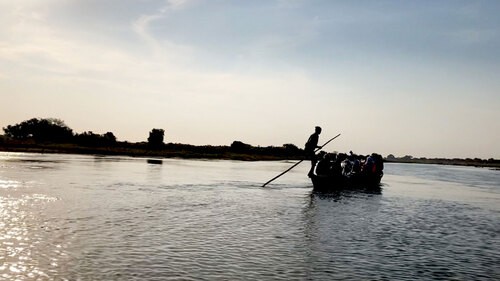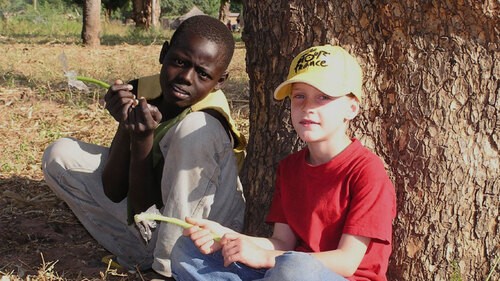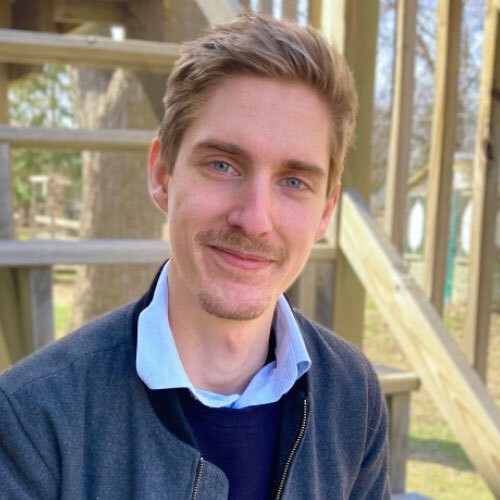Being the Church Around the World

If you ever think about becoming a missionary, it could be a good idea to take a long-distance plane, then a rugged Land Cruiser, and then a canoe… into the heart of Africa. That’s what I did in January.
I’ve thought about becoming a missionary. So I joined a “vision trip” our Church organizes in order to help us discover the work that we do in faraway countries for the gospel to be heard. But this trip to faraway places can paradoxically lead us to rediscover our own Christian lives that have been in front of us all along. That’s because mission isn’t just something some of us do sometimes, if we’re ambitious. It turns out, it’s something that every one of us is already blessed to be a part of, as those who have received Christ’s care through his Word and his Church. Let me give an example from the trip.
Chad is an impoverished country with many poor and many hungry people. Their spiritual thirst is great, which is why we send missionaries, but so is their physical thirst. How do our missionaries balance preaching the gospel with caring for physical needs? Bible translation with installing wells? Evangelism with building schools? Nathanael Szobody, who has founded an elementary school in a Muslim village in rural Chad, shared this: “The need for education is so great that we could just go on building school after school, and it would work. Lots of kids would be educated. It’s tempting! And of course I have already accepted the village chief’s invitation to build one school. But I was also sent here by the Lutheran Brethren as an evangelist…”
This is a tough tension to resolve. But do we, as Christians, need to resolve it? When I read the Gospels, I find Jesus living in that tension, just like our missionaries do. He gives spiritual food, preaching himself as the bread of life, yet he also gives physical food, multiplying the loaves. He never separates caring for the salvation of souls God created from caring for the bodies that God also created and called good. Behind these different types of care, Jesus shows one and the same compassion. Yes, the Gospels tell us that Jesus preaches, teaches, and sends evangelists out of compassion (Mark 6:34, Matthew 9:36), while he also cares for the sick and hungry out of that same compassion (Matthew 14:14; 15:32).
When I travel to a faraway place like Chad and learn that Jesus’ mission—and the Church’s mission—is about compassionate care, then missionary-like work no longer seems as exotic. If you have received Christ’s care, you are already qualified to share it with others. Christ-like care can take many forms, and one important thing that determines what form it takes is this question:
What are the needs around you?
Responding to those needs may be the mission you get to share with the One who cares for us.
I’ve thought about becoming a missionary. So I joined a “vision trip” our Church organizes in order to help us discover the work that we do in faraway countries for the gospel to be heard. But this trip to faraway places can paradoxically lead us to rediscover our own Christian lives that have been in front of us all along. That’s because mission isn’t just something some of us do sometimes, if we’re ambitious. It turns out, it’s something that every one of us is already blessed to be a part of, as those who have received Christ’s care through his Word and his Church. Let me give an example from the trip.
Chad is an impoverished country with many poor and many hungry people. Their spiritual thirst is great, which is why we send missionaries, but so is their physical thirst. How do our missionaries balance preaching the gospel with caring for physical needs? Bible translation with installing wells? Evangelism with building schools? Nathanael Szobody, who has founded an elementary school in a Muslim village in rural Chad, shared this: “The need for education is so great that we could just go on building school after school, and it would work. Lots of kids would be educated. It’s tempting! And of course I have already accepted the village chief’s invitation to build one school. But I was also sent here by the Lutheran Brethren as an evangelist…”
This is a tough tension to resolve. But do we, as Christians, need to resolve it? When I read the Gospels, I find Jesus living in that tension, just like our missionaries do. He gives spiritual food, preaching himself as the bread of life, yet he also gives physical food, multiplying the loaves. He never separates caring for the salvation of souls God created from caring for the bodies that God also created and called good. Behind these different types of care, Jesus shows one and the same compassion. Yes, the Gospels tell us that Jesus preaches, teaches, and sends evangelists out of compassion (Mark 6:34, Matthew 9:36), while he also cares for the sick and hungry out of that same compassion (Matthew 14:14; 15:32).
When I travel to a faraway place like Chad and learn that Jesus’ mission—and the Church’s mission—is about compassionate care, then missionary-like work no longer seems as exotic. If you have received Christ’s care, you are already qualified to share it with others. Christ-like care can take many forms, and one important thing that determines what form it takes is this question:
What are the needs around you?
Responding to those needs may be the mission you get to share with the One who cares for us.

Matthias as a child with a friend in Chad.

Driving during a recent video trip to Chad.

MATTHIAS SZOBODY is a 2022 graduate of Lutheran Brethren Seminary and currently exploring options in ministry.
